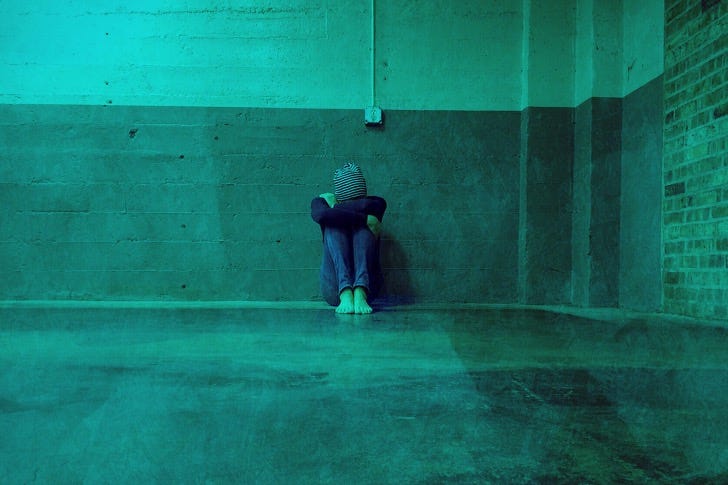In Defense of the Depression Implant
Brain implants to help with severe, treatment-resistant depression are a miracle and not "dystopian."
Recently, a New York Times story detailing the plight of a woman who got a brain implant to help with her treatment-resistant depression made waves. Countless people jumped in to comment on social media about how it was “dystopian” or that we were are in a “hell world.” However, as a trans person, I have mental anguish that can only be resolved surgically, and I am extremely reluctant to condemn other surgical inventions that might save others. What we are witnessing is a form of reactionary ableism.
For as long as I can remember, something felt deeply wrong about my body and having “boyness” foisted upon me. Puberty greatly exacerbated many of these symptoms, as it triggered numerous changes in my body that made it feel even more alien and strange. Though fortunately, much of that distress could be alleviated by years of hormone therapy, some can only be fixed with surgical intervention — surgery I still have yet to get at 33, with recent setbacks caused largely by the pandemic.
The reaction from large swaths of the population is that what I am seeking is “mutilation” or that I should get no help from insurance or other people in seeking this very beneficial treatment. The revulsion people feel towards the brain implant — even among some trans people — is a similarly reactionary mentality, though fueled by contempt for the plight of sufferers of mental illness rather than trans people.
Many critics call it the “lobotomy implant” and claim it will be used to create compliant worker drones. This is not nerve stapling from the iconic 4X game Alpha Centauri. This is not a procedure that risks rendering one catatonic. This is a device that can be consensually used by people as a line of last resort against a devastatingly difficult mental illness — this is literally life-saving in much the same way trans surgery is too.
If people were suddenly forced to let doctors implant these, the root problem would still not be the implants themselves but the fact that decades of progress of fighting for the rights and autonomy of patients were lost — something with consequences that would be far-reaching, even if with some procedures, like this one, it would be more horrific than others. One can make the case that COVID-19 vaccine mandates represent that sort of erosion of rights, though vaccines have long had a special status as a very low-risk, minimally invasive tool of public health.
Alarmism about how the implant will be used is akin to the constant cry of TERFs — the cadre of transphobes Dave Chappelle recently publicly identified with — that people with any significant degree of gender non-conformitivity are being coerced into transitioning. Despite adherence to gender norms being, thankfully, at an ever-sinking low, they claim there is a “genocide” against masculine women and tomboys that simply is not happening. Many in those categories love being women and face no pressure to transition. Even I was rather tomboyish for the first years of my transition — it was not about wanting to wear a dress, even if I wear them regularly now.
Though it is certainly possible for precedents set to snowball into worse problems, there is a reason that the “slippery slope” is considered a logical fallacy. Just because one can imagine some deeply alarming, nightmarish outcome is little reason, in and of itself, to put a halt to something. That does not mean that we should not operate with an abundance of caution to develop safe medical technologies, but people should not be denied helpful treatments because one can imagine it being forced upon someone.
The anguish of my gender dysphoria is so bad that it is the primary factor fueling several strong spells of suicidal ideation I have had. So often, in those moments, what I want even more than to die is to feel relief. To not be haunted by a problem that is resistant to attempts to tame it with coping strategies or medication. What I see in this woman is a kindred spirit — one who may not experience the particular flavor of mental anguish I do, but who, after millennia of medicine being unable to help people like her, was afforded precious relief.
Medicine, by its very nature, dealing with people’s lives and livelihood in a particularly profound way, is a bit scary. Seeing new, invasive manners of treating long-standing problems can understandably make one anxious about what their medical experiences will be going forward. But advances in medicine are creating miracles that would be unthinkable to people centuries ago. This is a cause for celebration.


